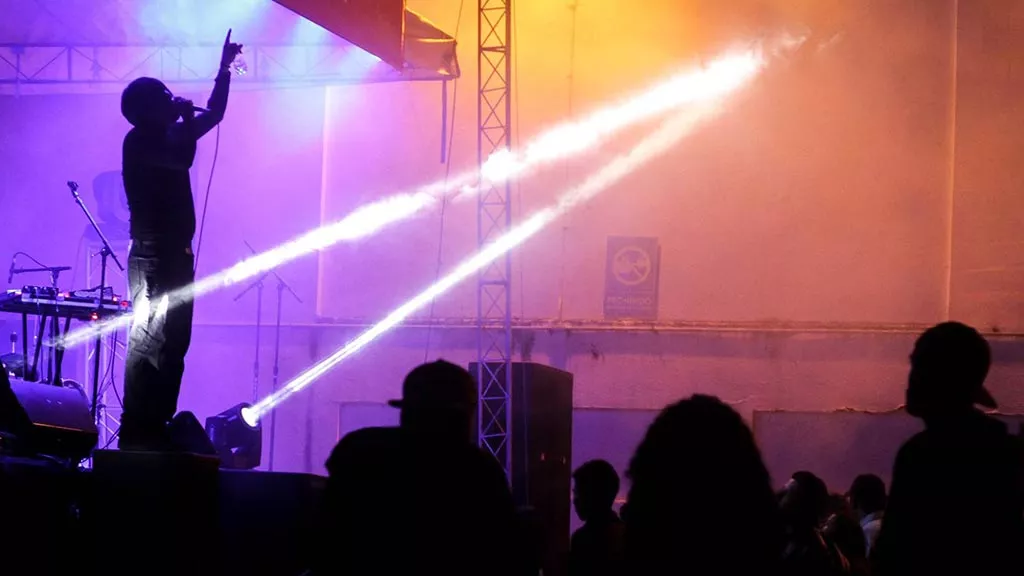The artistic presentations returned to Cuenca after almost two years of restrictions that put the economy of the cultural sector in check.
During the pandemic, a group of managers created the Festival Network, which brings together 10 initiatives, in order to turn the capital of Azuay into a “city of festivals.”
The pandemic showed that one of the most precarious sectors is the cultural sector and it was one of the last to reactivate, explains Boris Banegas, spokesman for the Festival Network.
“The objective of the network is to create a public policy for the development and sustainability of these manifestations, but also, we are clear that they can go hand in hand with economic development and Cuenca has great potential in that regard,” he says.
The cultural economy can generate income in two ways, details Banegas: “first, there are the families that live from artistic activity, and, at a macro level, there is the impact that festivals can have on the city, which is closely linked to tourism.”
According to a diagnosis made by the Casa de la Cultura Nucleo del Azuay during the pandemic:
- 6% of artists and cultural managers were unable to work.
- 36% could not meet their basic needs, such as food and rent.
“It is a super-hit sector and that is paradoxical, because we are talking about a sector that sustained us in the pandemic: cinema, music, for example,” says Juan Andrade, director of the International Festival of Performing Arts Escenarios del Mundo, whose fifteenth edition took place in Cuenca at the end of November.
Andrade says that “it is important to be clear that culture does not have an exclusively economic purpose, its objectives are other,” but considers that at the moment festivals are “a hope, a respite” for artists and managers.
In the festival that he directs, for example, the direct sources of work were for actors, musicians, technicians, production team, design, advertising, printers. But services such as lodging, food and transportation were also activated.
Large festivals, due to their investment or the number of days they take place, generate at least 100 direct sources of work under normal conditions (before the pandemic), according to data from the Network.
These also generate a movement in the sector of bars and restaurants. Escenarios del Mundo, for example, had approximately 10,000 attendees this year, when the performances were held with reduced capacity. In previous years, the average has been 25,000 viewers.
Andrade explains that most of these people, in addition to going to see the plays, go to eat or have a coffee and this is evidenced in how the places near the theater are activated.
A boost for tourism
The economic movement of the cultural sector is linked to tourism. Jaime Ulloa, director of the Rotofest Independent Music and Electronic Culture Festival, which has already been running for 15 editions, explains this relationship with an example: before the pandemic, this event generated alliances with the institutions that manage tourism in the city and the province.
The festival took place over two days, on a national holiday -Carnival, for example-, and the entities began to promote Cuenca as a destination to live the experience of electronic and independent music.
In 2019 they achieved 70% hotel occupancy. “It is an important percentage, because here the only holiday that fills the hotels is November,” says Ulloa.
The Rotofest is one of the Cuenca festivals that invests the most resources (approximately $70,000) and generates about 100 direct jobs, in addition to complementary activities such as a business fair, which allows the generation of other resources indirectly.
This year, due to the pandemic, the festival did not take place in person, but it had a virtual edition in which the musicians performed in the most attractive places in Azuay. With this idea, Ulloa looked for another type of tourist promotion, despite not being able to take the public to those places.
“The idea of Cuenca, a city of festivals can be one of the strengths of the city, not only in the center and in the communities, but also abroad. Knowing how to take advantage of it, it is one more showcase for tourism in the country,” mentions Tatiana Olave, director of the TitiriCuenca Festival, which took place in the first days of December.
For Olave, in Cuenca there are the necessary conditions to reach this goal: “One of the wealth of the city is the number of good managers it has and that allows these activities to have a high level.”
What is missing, the managers agree, are public policies that allow the development of festivals in better conditions.
“Having stopped for so long in the pandemic has made artists feel in a huge way the lack of a public policy to solve our needs, but there are initiatives that are born collectively, like this one, to generate this discussion,” says singer Vanessa Freire.
For this reason, the managers ask the local authorities that this proposal be considered for the Cantonal Plan of Culture of Cuenca.
The initiatives that make up the network are varied and target diverse audiences. There are festivals for performing arts, puppetry, guitar, opera, film, dance, independent music, and urban cultures. In the last month, three were held: the Scenarios del Mundo Performing Arts Festival, the Guitar Festival and the Titiricuenca Theater and Puppet Festival.
The objective of the network is that these activities take place throughout the year, so that Cuenca has high impact cultural activities most of the time.


0 Comments